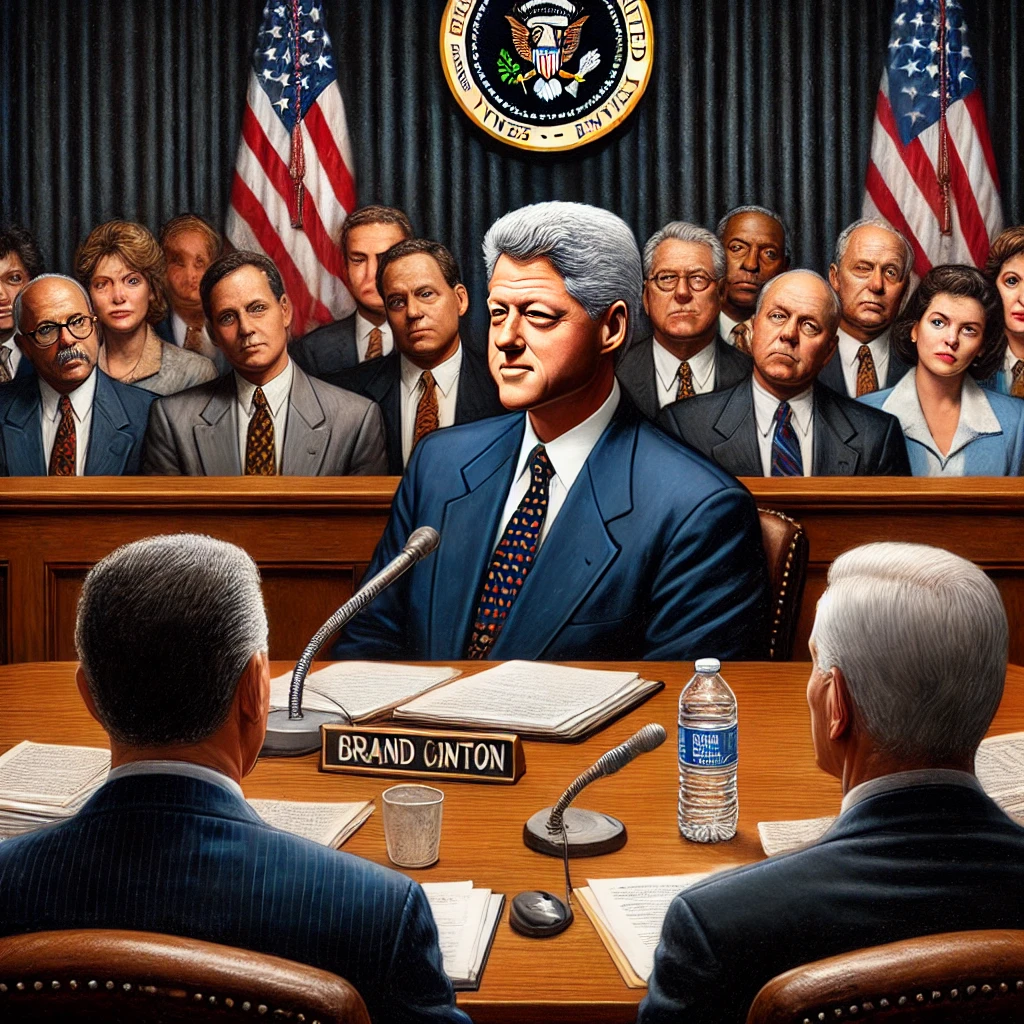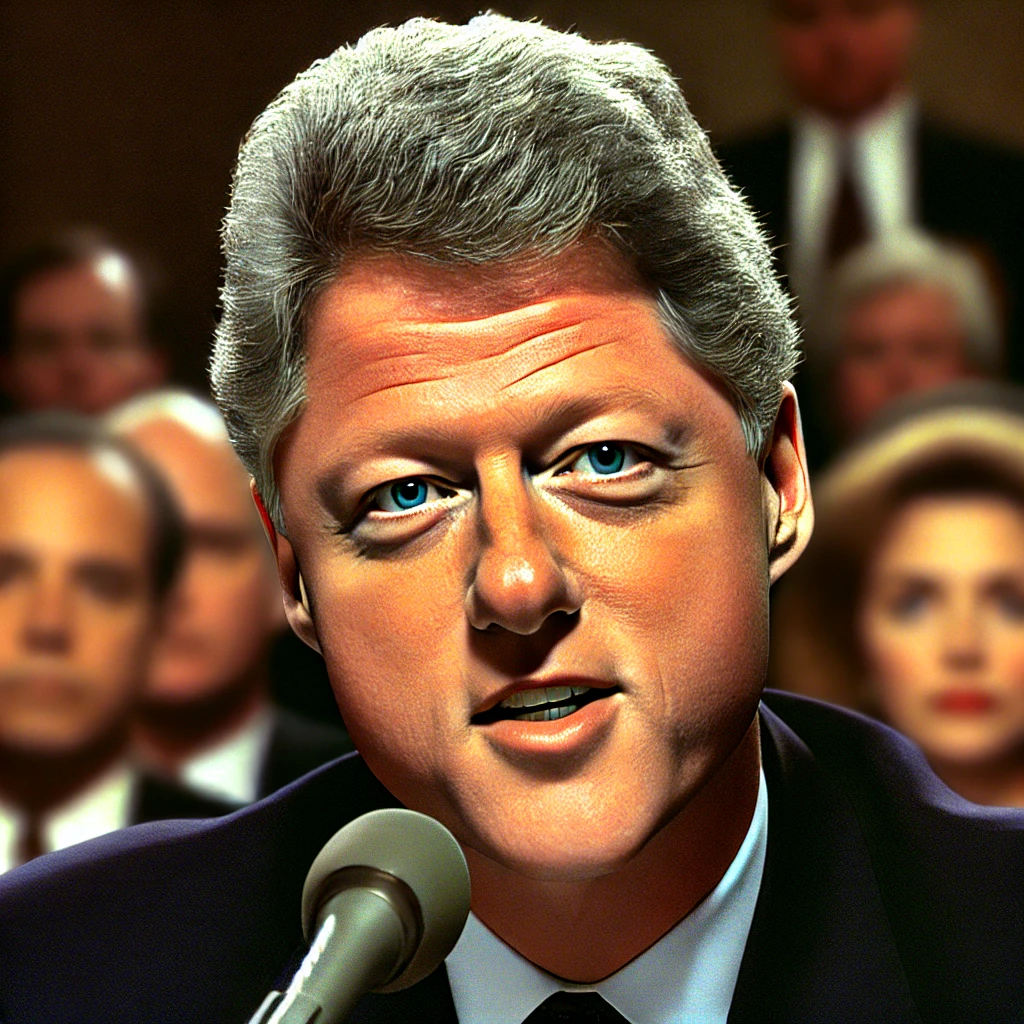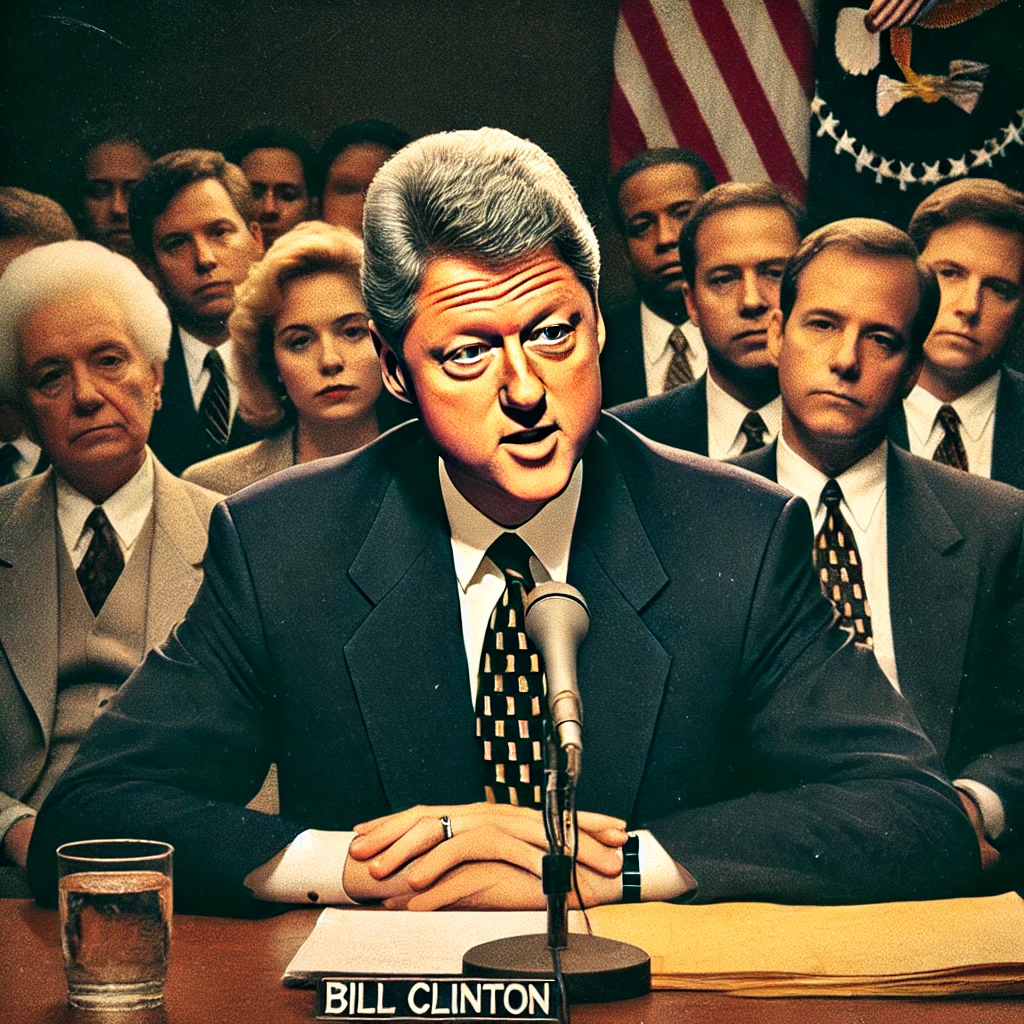On August 17, 1998, President Bill Clinton testified before a grand jury regarding the Monica Lewinsky scandal, a significant event in American political history. The testimony was part of a broader investigation led by Independent Counsel Kenneth Starr into allegations of sexual misconduct and possible obstruction of justice. The case had been a focal point of intense media scrutiny and public debate, casting a shadow over Clinton’s presidency.
The investigation began with allegations that Clinton had an inappropriate relationship with Monica Lewinsky, a White House intern. The grand jury testimony was a crucial component of the legal process, aimed at determining whether Clinton had perjured himself or obstructed justice in his statements about the affair. The testimony was highly anticipated, as it was expected to shed light on the extent of the alleged misconduct and its implications for the presidency.

The Testimony and Public Reaction
President Clinton’s testimony before the grand jury was a significant moment in the investigation. During his testimony, Clinton addressed questions related to his relationship with Lewinsky and the statements he had made regarding the affair. The testimony was conducted in a closed session, and details were initially kept confidential. However, the testimony eventually became public, leading to widespread media coverage and intense public interest.
The grand jury testimony had a profound impact on both the political landscape and public opinion. The revelation of Clinton’s testimony and the surrounding investigation sparked debates about presidential conduct, privacy, and the boundaries of legal accountability for public officials. The event also highlighted the role of independent investigations in holding elected officials accountable.

The Aftermath and Legacy
The aftermath of President Clinton’s grand jury testimony led to significant political developments. Following the testimony, the House of Representatives voted to impeach Clinton on charges of perjury and obstruction of justice. The impeachment proceedings were a major political event, with Clinton ultimately being acquitted by the Senate and remaining in office for the remainder of his term.
The legacy of the Clinton grand jury testimony and subsequent impeachment proceedings continues to be a topic of historical and political analysis. The events raised important questions about the interplay between personal conduct and public office, as well as the impact of high-profile investigations on political institutions. The Clinton scandal remains a notable example of the complex and often contentious nature of political accountability.

On August 17, 1998, President Clinton’s testimony before the grand jury marked a pivotal moment in American political history. The event was a key chapter in the Monica Lewinsky scandal and highlighted the challenges of balancing personal and public responsibilities in the highest office of the land. The legacy of the testimony continues to influence discussions about presidential conduct and the role of independent investigations in American democracy.
